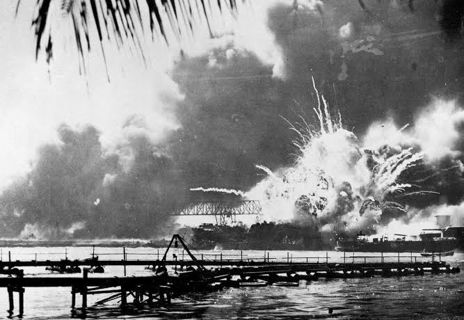The Devastating Legacy of the Atomic Bombings on Japan: Examining the Ethics of Nuclear Warfare

On August 6th and 9th, 1945, the United States dropped atomic bombs on the Japanese cities of Hiroshima and Nagasaki, respectively. These bombings remain two of the most controversial events of the 20th century and have sparked countless debates over the ethics of using nuclear weapons in warfare. Here is a detailed account of the atomic bombings of Japan, exploring the context, impact, and aftermath of these tragic events.
Background and Context:
The Second World War was in its final stages in 1945, and the Allies were determined to bring the war to an end. The Pacific War had been raging for several years, and the United States had been engaged in a brutal island-hopping campaign against the Japanese. The Japanese were determined to fight to the bitter end, and the Allied powers were faced with the prospect of a costly and bloody invasion of the Japanese mainland. It was against this backdrop that the decision was made to use atomic bombs against Japan.
The Manhattan Project:
The United States began developing the atomic bomb in 1939, under the auspices of the Manhattan Project. The project involved some of the world's leading scientists, including Albert Einstein, and was shrouded in secrecy. The first successful test of an atomic bomb took place on July 16th, 1945, at Alamogordo, New Mexico.
The Bombings:
On August 6th, 1945, the United States dropped an atomic bomb on the Japanese city of Hiroshima. The bomb, nicknamed "Little Boy," had a yield of 15 kilotons of TNT and killed an estimated 140,000 people. Three days later, on August 9th, a second atomic bomb, nicknamed "Fat Man," was dropped on the city of Nagasaki, killing an estimated 70,000 people.
Impact and Aftermath:
The immediate impact of the bombings was catastrophic. The explosions flattened the cities and caused massive fires, killing tens of thousands of people instantly. Those who survived the initial blasts suffered horrific injuries, including severe burns, radiation sickness, and trauma. The long-term effects of the radiation exposure are still being felt today, with many survivors suffering from cancer and other radiation-related illnesses.
The bombings had a profound impact on Japanese society and the course of the war. The Japanese government, which had been divided over the question of surrender, quickly agreed to the terms of the Potsdam Declaration, and the war ended just days after the Nagasaki bombing. The bombings also ushered in the nuclear age and sparked a global arms race as countries scrambled to develop their own nuclear weapons.
Controversy and Debate:
The use of atomic bombs against Japan remains one of the most controversial events of the 20th century. Supporters argue that the bombings were necessary to end the war quickly and save lives, while critics argue that the bombings were unnecessary and constituted a war crime. The debate over the ethics of using nuclear weapons in warfare continues to this day, and the legacy of the bombings remains a contentious issue in international relations.
Conclusion:
The atomic bombings of Hiroshima and Nagasaki were tragic events that had a profound impact on Japanese society and the world at large. While the bombings remain controversial, they remain a stark reminder of the devastating power of nuclear weapons and the importance of pursuing peace and diplomacy in international affairs. As we reflect on the legacy of these events, let us renew our commitment to building a more peaceful and just world.
MUHAMMAD SHAHZAIB ANWARさんをフォローして最新の投稿をチェックしよう!
0 件のコメント
この投稿にコメントしよう!
この投稿にはまだコメントがありません。
ぜひあなたの声を聞かせてください。
